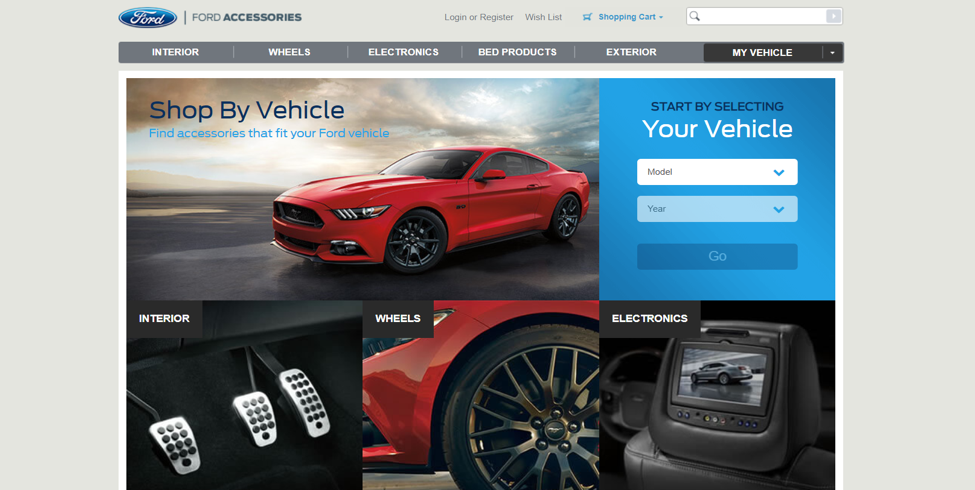Ecommerce platforms can go a long way in establishing a brand’s identity. However, for well-established, globally-known brands such as Coca-Cola or Tesla Motors, the right ecommerce solution can be used to constantly improve, customize, and showcase the brand’s new products, increase scalability and global reach, and improve customer experience. Read on to know more about five of the biggest brands in the world and the ecommerce platforms they run on.
5 Major Brands And Their Ecommerce Platforms
Over the last few years, the popularity of ecommerce has changed the way business is done. More and more big brand names have an online presence to showcase their products or services. We’ve listed out five brands that are always on the top of the ecommerce game by choosing some of the most popular ecommerce platforms to run their online stores.
Coca-Cola

Coca-Cola runs its online store on Magento
Coca-Cola is one of the most recognizable brands in the world. With annual global sales of billions of dollars, the soft drink giant uses Magento to run its online store. The store’s homepage is fun of vibrant images that pay homage to the brand’s tradition of celebration and bringing people together. The easy navigation via drop-down menus give users access to all the products on offer. From baseball-themed bottles to bags, clothing, and other merchandise, there’s plenty on offer for Coca-Cola fans on the online store. The brand also has a feature to customize a bottle with a name or phrase of your choice.
Tesla Motors
 Clean design and great features by Shopify define Tesla Motors’ online store
Clean design and great features by Shopify define Tesla Motors’ online store
Established in 2003, Tesla Motors focuses on clean technology and superior design to create vehicles that are innovative and environmental-friendly. Powered by Shopify, Tesla Motors’ online store combines great design with user-friendliness to give customers a look and feel of everything that the brand stands for. The minimalist design perfectly accentuates Tesla Motors’ emphasis on clean living and energy-saving products. Along with showcasing new and used vehicles, the brand sells wall connector and charging adapters for cars, merchandise like clothing for men, women, and kids, fashion accessories, vehicle collectibles, drinkware and other products that feature the brand’s name. If you own a Tesla vehicle or are a fan of the brand, this is a one-stop place for all the accessories you need.
Budweiser

The famous beermaker uses Shopify to sell its merchandise
This popular beer brand has been around for over 100 years and its online presence via an online store has only made the brand more popular. Budweiser uses Shopify to power its online store that sells everything from clothing to coasters, all emblazoned with the brand’s popular logo. The brand’s traditional colors of red and white welcome users to the store and the products on display. With Shopify, the store is simple to navigate and features such as the drop-down menu provides customers with quick access to the products that are on offer. There is also a button for featured products which are some of Budweiser’s best selling merchandise which is a great feature provided by ecommerce platforms like Shopify.
Red Bull

Shopify powers Red Bull’s energetic and amazing online store
The beverage brand has been a runaway success throughout the world and its online store has only added to its massive fan-following. Powered by Shopify, Red Bull’s online store is filled with great design and vibrant images that focuses on all the products sold by the brand. From jackets and hats to headphones and even custom socks, you’ll find all kinds of lifestyle products and accessories at the store. The store has an energetic, youthful look and feel that perfectly complements the brand’s image. All new arrivals to the store are displayed on the homepage while the large drop-down menu on the top of the site makes it possible for customers to access products easily.
Ford Motors

Ford Motors’ accessories web store runs on Magento
Ford Motors uses Magento to power its accessories website and the move to the platform has profited the carmaker immensely. The accessories site features a simple design with the product categories displayed on the homepage. Users can also quickly access the products from the top menu on the homepage. On clicking a product or product category, a pop-up box asks the user for the vehicle’s information such as model and year of manufacture. This customized feature helps customers to quickly locate the product details they are looking for. By running its ecommerce services on Magento, Ford’s ecommerce sales have increased year after year and the company remains one of the biggest ecommerce businesses in the country.
